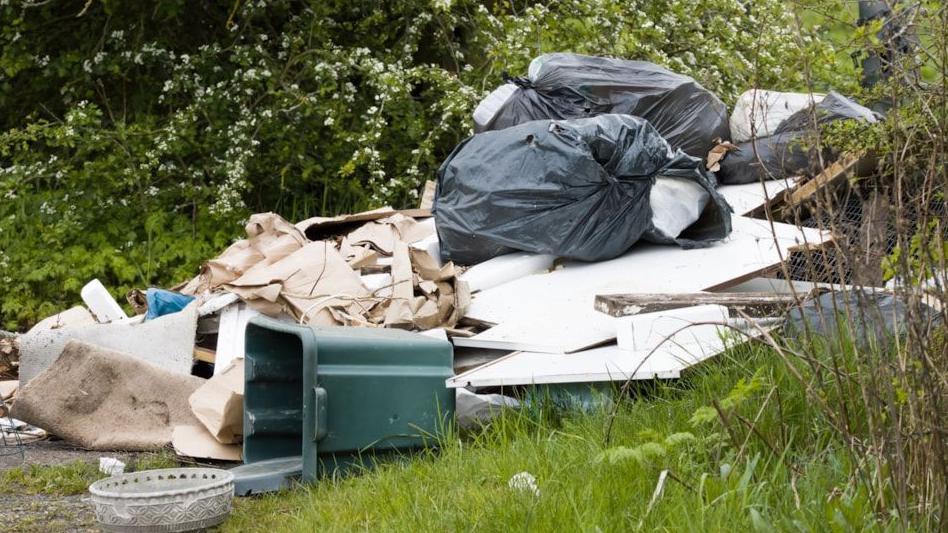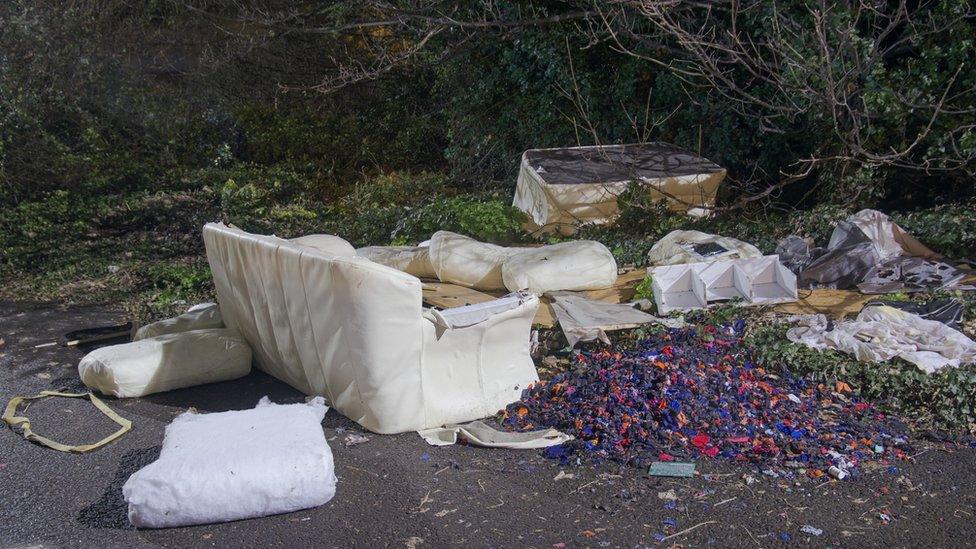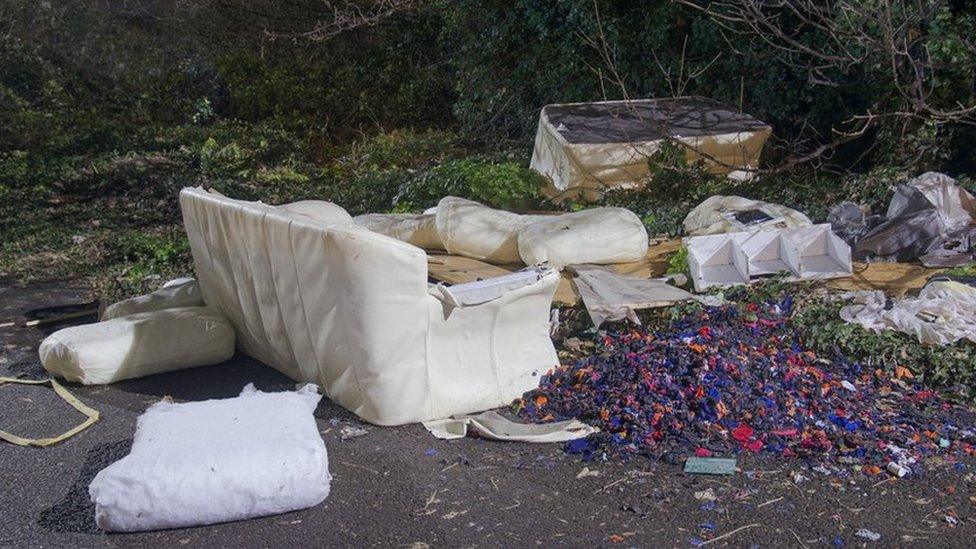New cameras installed to combat fly-tipping

The authority said it was "intensifying" its efforts to combat fly-tipping
- Published
A council is installing 20 new CCTV cameras in a bid to catch fly-tippers.
West Oxfordshire District Council previously had four cameras, and it shared those with another council.
The authority said it was "intensifying" its efforts to combat fly-tipping, and called the installation of the covert cameras a "significant move".
It is being funded by the Police and Crime Commissioner (PCC) for Thames Valley, and the Home Office’s Safer Streets initiative, external.
The cameras are specially-developed to tackle crime in rural outdoor settings. They use night vision and do not glow in the dark.
The cameras will be regularly moved around the district "to tackle known and new issues", the council said.
New signs will be set up around known hotspots.
The authority recently increased fixed penalties for fly-tipping from £400 to £1,000.
Geoff Saul, executive member for housing and social welfare, described it as a "hugely worthwhile project that will help us support our residents and make them feel much safer in their communities".
PCC for Thames Valley Matthew Barber said: "Fly-tipping is not just an eyesore, it can be a health hazard and also create a dangerous environment for wildlife and, when done on farmland, livestock and crops."
South Oxfordshire and the Vale of White Horse district councils are also to get additional cameras in the scheme, which he said would "help tackle these incidents which blight our rural environment".
The project is led by the Rural Crime Partnership, which brings together Thames Valley Police, West Oxfordshire, South Oxfordshire and the Vale of White Horse district councils, and their corresponding Community Safety Partnerships.
Follow BBC South on Facebook, external, Twitter, external, or Instagram, external. Send your story ideas to south.newsonline@bbc.co.uk, external.
- Published10 January 2024

- Published4 December 2023
